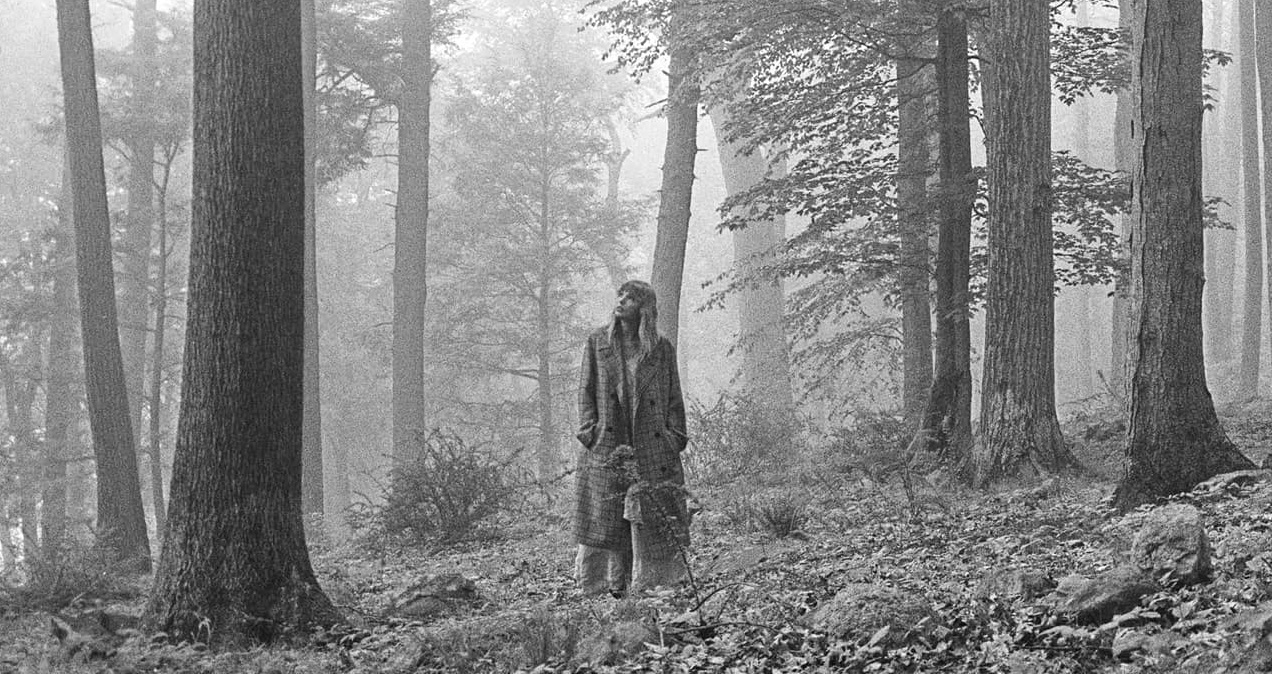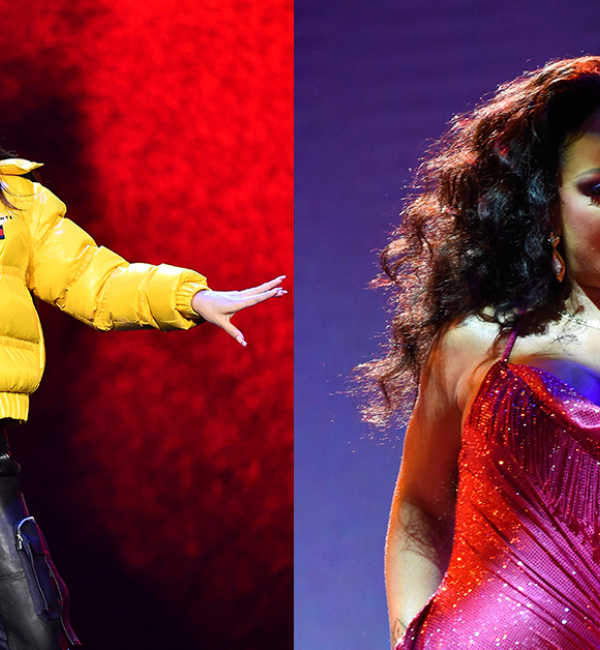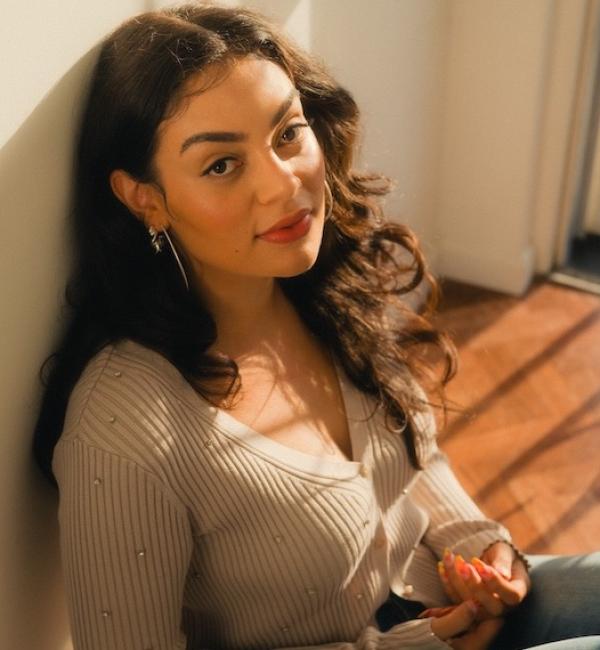
Folklore album cover supplied.
Coronavirus has provided its fair share of shake-ups for pop music. For the most part, we’ve watched major popstars promoting high-budget, glossy pop albums from their living room. Lady Gaga, Charli XCX, Dua Lipa and more have provided soundtracks for a dancefloor that can’t be occupied right now. It’s provided a sense of escapism that’s been strangely comforting.
Taylor Swift, one of pop’s most calculated figures, was meant to be on her first festival run right now, promoting 2019’s Lover. Instead, she surprise-released Folklore last week, taking a hard turn away from the big-scale pop she’s been perfecting for the last decade. Unlike the aforementioned, Swift’s quarantine creation is not for the dancefloor. It’s a folk album crafted with The National’s Aaron Dessner, Bon Iver, Jack Antonoff and more - a quiet record that is worlds away from the candy-coloured grandeur of ME! or the steely drama of Look What You Made Me Do.
The fact that Swift would surprise-release an album at all is surprising. Pulling a Beyonce, as it’s known, has been the polar opposite of Swift’s past release strategies. Her eras have always begun with visuals full of easter eggs and in-your-face singles that shout from the rooftop that Swift is back. On Folklore, there’s no shouting. It’s Swift embracing the most minimal end of her songwriting once reserved for album anomalies like New Year’s Day or Daylight.
If you’ve tracked Swift’s journey from country star to pop giant, an album with banjoes and guitars shouldn’t come as a huge shock. Her first three albums were full of guitar ballads and wondrous tales. They were always buoyed by pop hooks though, giving her some of her biggest hits in Love Story and You Belong With Me. You could say she’s come full circle on Folklore but the circle is not quite perfect. Folklore may return to the minimalistic songwriting approach of her debut album but it’s no companion piece. It’s starker and bolder. There are no obvious singles or ‘bops’. Instead, it’s a mature slice of escapism delivered through hearsay tales that Swift tells enticingly through her excellent songwriting.
Everything Swift has done in her career has been gradual. She didn’t become a popstar overnight. She carefully shed her country roots, preluding her big pop turn 1989 with Red - an album that sat Max Martin productions like We Are Never Getting Back Together alongside intimate moments like All Too Well. Reputation maximised the drama of 1989 and then Lover began to pare it back again. Folklore stomps over that careful lineage. There was barely even a hint to her folk intentions on Lover. As the world shut down, so too did Swift. She disappeared into a world of her own finding escapism in tales that piqued her imagination. “My gut is telling me that if you make something you love, you should just put it out into the world,” Swift wrote when she announced the album.
It’s hard to argue that her gut feeling was wrong. Pop history, however, often says the pared-back detour doesn’t work. Lady Gaga made a dramatic shift from four-to-the-floor pop on the country-tinged Joanne, garnering a mixed reaction from fans. Justin Timberlake drew career-low reviews on his misjudged Man Of The Woods record which attempted to fit together folk and R&B in an impossible puzzle. Similarly, Miley Cyrus failed to garner commercial success with her country-turn Younger Now. Regardless of your personal opinions on these albums, they objectively failed to draw the sales of the artists’ previous albums.
Folklore, on the other hand, is on track to debut in the US with the biggest opening week of the year. Cardigan is in with a real chance of debuting at number one. It would be her first number-one single since 2017. Impressive for an artist who has been hunted down by cancel culture at every stage of her career.
Folk is not in vogue right now. Artists like Phoebe Bridgers may be cult icons right now but they’re not about to light the charts on fire. The entirety of this week’s US Hot 100 top 10 is made up of hip-hop and R&B songs. When Gaga, Timberlake and Cyrus went country/folk there was evidence that it was working on the charts. Avicii had been mixing country with EDM, Zedd was collaborating with country star Maren Morris and Bebe Rexha had her biggest hit Meant To Be with Florida Georgia Line. The Yeehaw agenda was in full swing. There’s no folk on the commercial charts right now - it’s likely Swift doesn’t care.
The success of Folklore comes in how defiant it is. It would’ve been both interesting and dangerous to hear The National play in Swift’s pop world but that doesn’t happen. She doesn’t waver from the folk palette, allowing her songwriting to make it an obvious Swift record, rather than the genre.
Swift’s record label reportedly knew about this album just moments before the rest of the world did. If this was Swift’s first album in two years, like Lover, you’d imagine they’d be less inclined to grant her this whimsical detour into her imagination. Recording an album in quarantine, just months after a major album release seems to have granted Swift the right to abandon hits and it pays off.
Using Gaga as an example, Joanne came three years after her previous album ARTPOP. As a major popstar, she’s expected to have hits and so her country blueprint collided with pop. It gave her a better chance at radio but it also confused an album that’s brightest moments were also its simplest (Million Reasons, Come To Mama). Timberlake’s Man Of The Woods failed even more so in its tug of war between folk and pop/R&B. Lead-single Filthy was a futuristic funk track sitting on an album that had song titles like Breeze Off The Pond and Livin’ Off the Land. Just imagine You Need To Calm Down as the lead track on Folklore.
Folklore isn’t catering to anybody except Swift and its creators. That’s why it’s great. For years, Swift has been expected to play characters and dramatise narratives. From snakes to girl squads, it’s been part of her brand. It’s made her a wildly entertaining popstar but it’s also invited public scrutiny. Folklore is so intimate and downplayed that it once again reveals Swift’s humanity. It’s unfiltered, and even though she’s not always singing about herself, the smattering of F-bombs show she’s done with shining her image.
This is Swift as a person, not Swift as a popstar.








